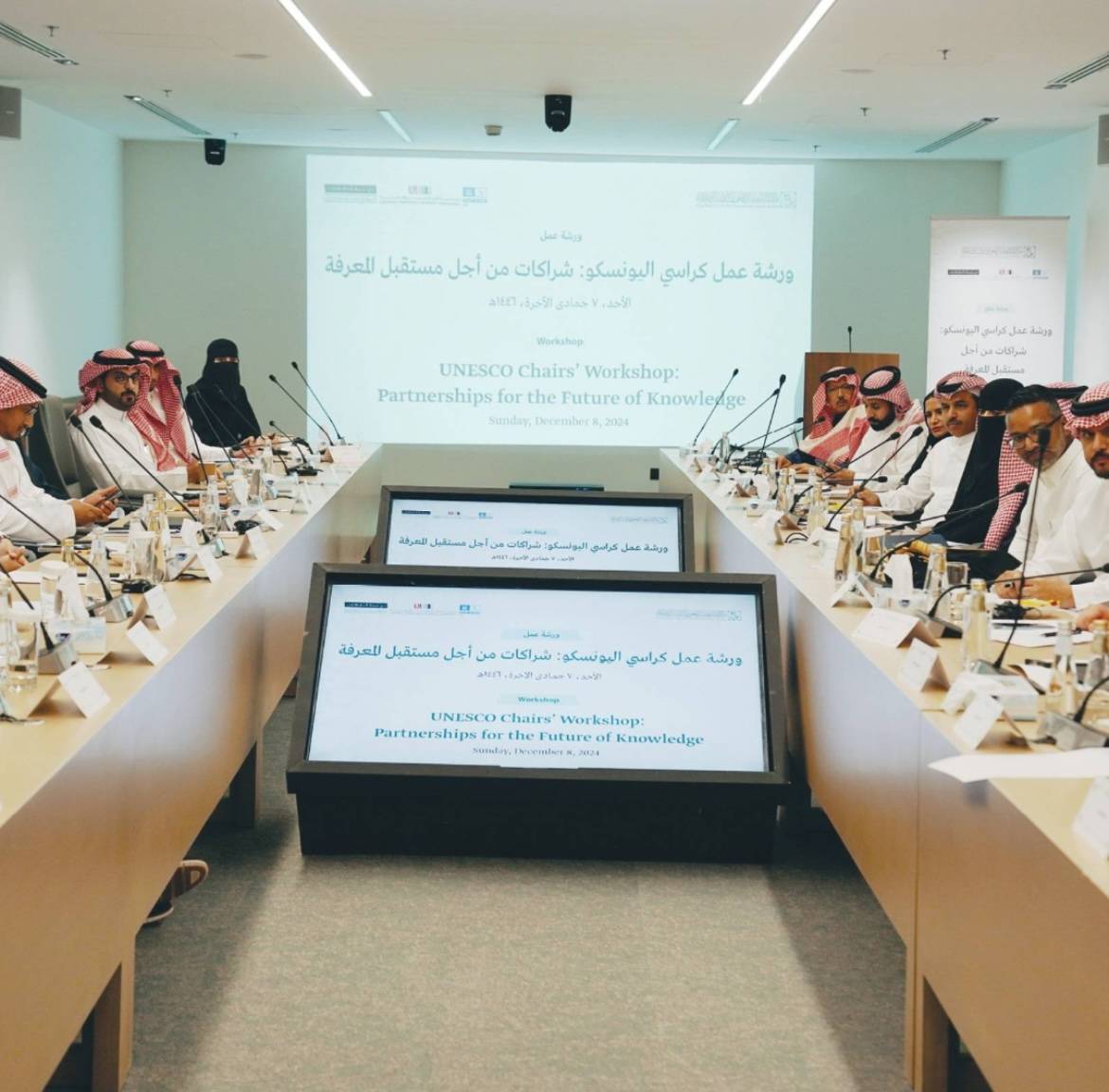2024-12-08
On Sunday, December 8, 2024, the King Faisal Center for Research and Islamic Studies, in collaboration with the Saudi National Commission for Education, Culture and Science and the UNESCO Regional Office in Doha, helf a workshop entitled "UNESCO Chairs: Partnerships for the Future of Knowledge." The UNESCO Chair in Translating Cultures at the King Faisal Center for Research and Islamic Studies, supported by the Literature, Publishing and Translation Commission, participated in the workshop with a presentation entitled: "The Global South and UNESCO Chairs: A Partnership for the Future of Human and Social Studies," delivered by Professor Moneera Al-Ghadeer, Director of the UNESCO Chair in Translating Cultures.
She addressed the term "Global South," which the chair uses in its conceptual framework to refer to comparative analyses of the shared intellectual and cultural dimensions among countries of the South. Professor Al-Ghadeer explained that the chair has launched initiatives through its eight topics that discuss the importance of activating academic and research cooperation and developing knowledge among and about countries of the South. She noted that focusing on the "Global South," the chair is working on translating research into English, Chinese, Spanish, Korean, and other languages, with this year's focus on the topic of Arab-Chinese cultural relations.
This endeavour has resulted in the translation of the book "The Cultural Turn in Translation Studies" by Professor Wang Ning in collaboration with Shanghai University. Professor Al-Ghadeer highlighted the chair's aspirations to launch joint initiatives among researchers and institutions in the Arab world and countries of the South and develop trilateral cooperation among them, given the commonalities in their cultures that encourage stimulating cooperation for research production and knowledge exchange. She emphasized that this empowers these communities to innovate and achieve the Sustainable Development Goals for 2030.

